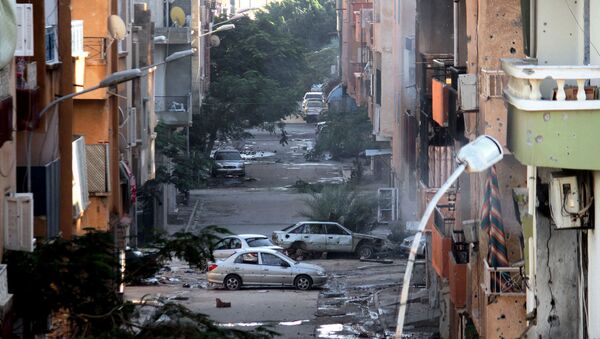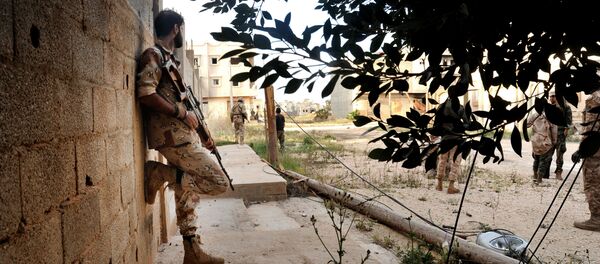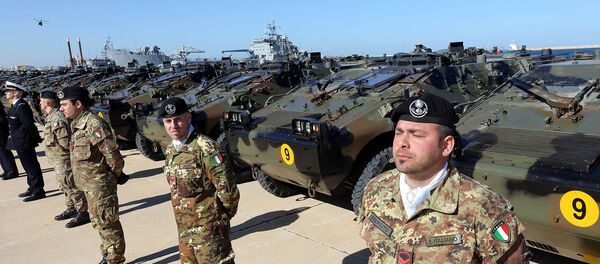Since the fall of Muammar Gaddafi in 2011, Libya has been in chaos. NATO airstrikes destabilized a government that was unpopular with the West, but otherwise secure, allowing terrorist groups like Daesh, also known as IS/Islamic State, to flourish.
Now the Pentagon has a new plan to "cripple" the terrorist group’s growing influence in Libya, and it’s not much different from the strategy that led to their rise. Presented to the White House last month, the strategy calls for “as many as 30 to 40” airstrikes across the country, which, it is promised, will allow "Western-backed" militias to overwhelm Daesh militants.
According to US officials, the plan is not being “actively” considered at this time, as the Obama administration is currently trying to install a unity government in Libya, and that effort could be hindered by renewed violence.
Earlier this week, a number of Libyan experts noted that the Pentagon’s strategies are based on faulty intelligence.
"The estimates of the number of jihadists is grossly exaggerated," said Karim Mezran of the Atlantic Council, according to AntiWar.com.
While the Pentagon has claimed that between 5,000 and 6,500 Daesh militants are operating in Libya, the need for only 30 to 40 airstrikes suggests that even Washington suspects that the terrorist fighters number in the hundreds, not the thousands.
As the US considers a new military operation in Libya, recently uncovered secret documents show that Italy has invasion plans of its own. Published by Italian newspaper Corriere della Sera, the documents show that Italian troops are preparing to join US, French, and British special forces that have been operating inside Libya for several weeks.
Varying estimates suggest that between 3,000 and 7,000 international troops will be deployed, with nearly a third sent by Rome.
Critics have questioned Italy’s need to become embroiled in a foreign military ground war.
"And the principal question – what is that national interest Italy wants to protect?" reads an op-ed from La Repubblica. "There is danger that Italy could once again be dragged into war with only one purpose – to please its allies."
Whichever stabilization strategy the West ultimately decides upon, the US and its allies may increasingly regret ousting Gaddafi in the first place.




